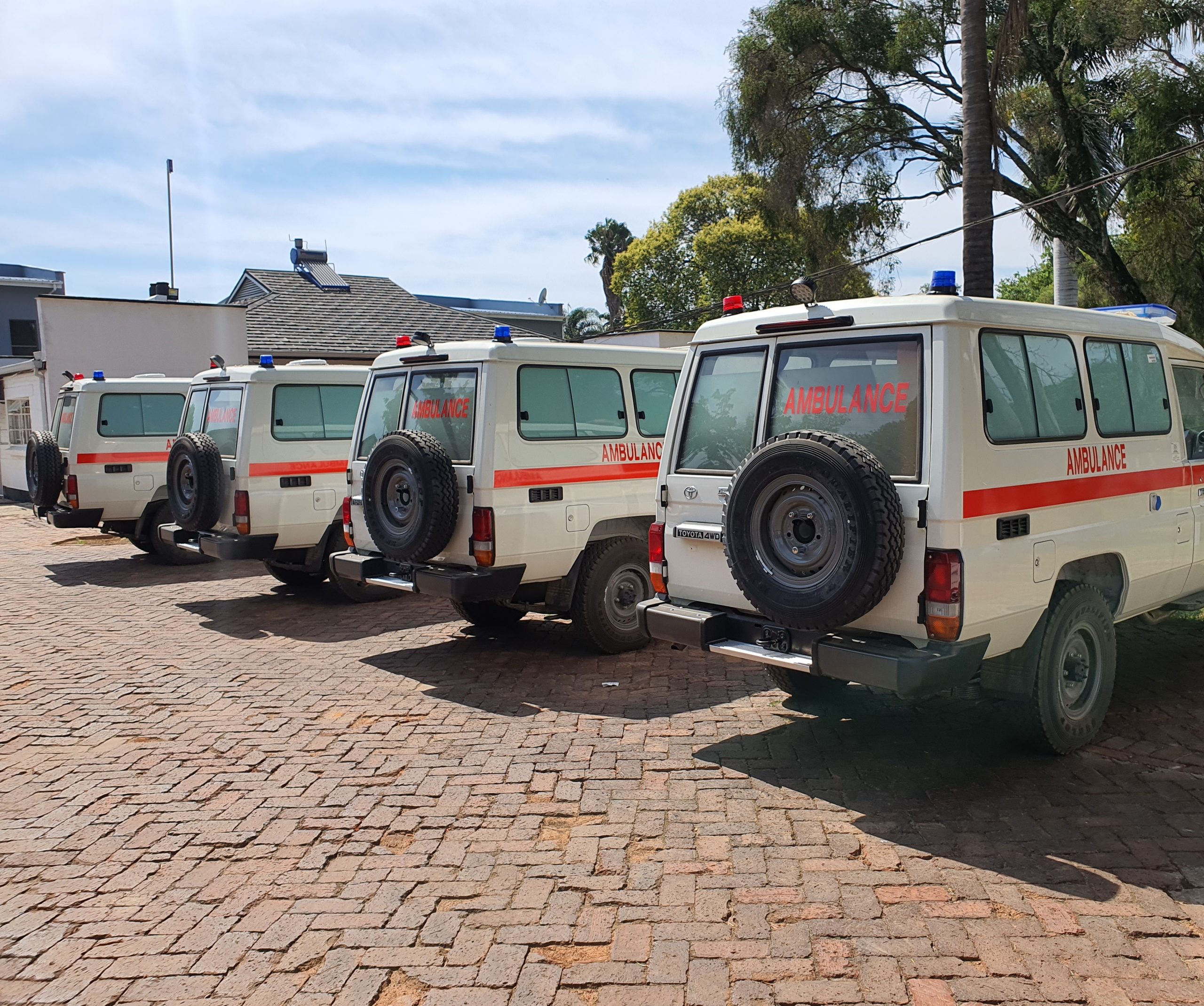|
Getting your Trinity Audio player ready...
|
The Government of Japan has provided US$ 322,259 in funding to increase the accessibility of basic emergency medical services in remote communities of Manicaland Province, in a project implemented by the United Nations Office for Projects Services (UNOPS). The project will provide ambulances to hospitals in Chipinge and Mutasa Districts, and a PCR machine to a hospital in Nyanga District. Approximately 194,240 people are expected to benefit across the three districts.
The three districts are among the districts that were severely affected by Cyclone Idai in 2019, which damaged many health facilities and disrupted access to health services. The cyclone underlined the need for accessible health services, as many communities remain cut off from such access. In addition, the COVID-19 pandemic has put further strain on the already stretched health system.
In order to increase accessibility to emergency health services for remote communities, Chikore Mission Hospital in Chipinge and Hauna District Hospital in Mutasa will both be provided with a fully-equipped four-wheel-drive ambulance. The project also seeks to make communities more resilient to climate shocks and pandemics. Nyanga District Hospital in Nyanga will be provided with a PCR and extraction machine.
Further, in partnership with the Ministry of Health and Child Care, UNOPS will facilitate the relevant training of medical personnel. Four ambulance drivers will be trained in ambulance operations, four nurses in the integration of health services, and two laboratory technicians in operations and maintenance of the PCR and extraction machine. This project will especially focus on ensuring that women and girls have access to health facilities for vital health and support services, as disasters and emergencies have a disproportionate impact on women and girls.
The Ambassador of Japan to Zimbabwe, H.E. Mr. Satoshi Tanaka, said “Given that people affected by Cyclone Idai still remain cut off from access to emergency healthcare, I hope that the ambulances will ensure that they can receive life-saving health services and that the PCR machine will allow improved diagnosis and treatment of viruses. I also expect this new equipment to make the communities more resilient to future climate shocks and virus outbreaks in the future”.
The Country Manager for UNOPS in Zimbabwe, Mr. Djibrilla Mazin, explained that this intervention would complement the Government’s efforts to restore normalcy in three of the districts of Manicaland that were affected by Cyclone Idai in 2019 – Mutasa, Chipinge, and Nyanga. COVID-19 brought an additional layer of vulnerability to these communities, which suffered extensive infrastructural damage in 2019 and continue to be hit by climatic shocks.
UNOPS has been responding to the needs of Cyclone Idai-affected communities in Manicaland Province since just after the cyclone struck in 2019. In seeking to provide emergency humanitarian assistance, Japan has relied on the experience and expertise of UN agencies including UNOPS, in collaboration with the Ministry of Health and Child Care to identify the humanitarian response needs and effectively implement critical responses.
About UNOPS
UNOPS’ mission is to help people build better lives and countries achieve peace and sustainable development. We help the United Nations, governments, and other partners to manage projects and deliver sustainable infrastructure and procurement in an efficient way. With decades of practical infrastructure experience, UNOPS is committed to supporting climate action and tackling climate emergencies.
UNOPS in Zimbabwe is helping build the foundations to support the country’s development agenda with a focus on sustainability and national capacity development. In close collaboration with the government, UN organizations, non-governmental organizations, and international financial institutions, UNOPS manages funds for disaster recovery and implements infrastructure projects with a focus on resilience and building back better communities.
Through a range of services as outlined above, UNOPS helps to accelerate the delivery and quality of humanitarian and development projects across the country.






